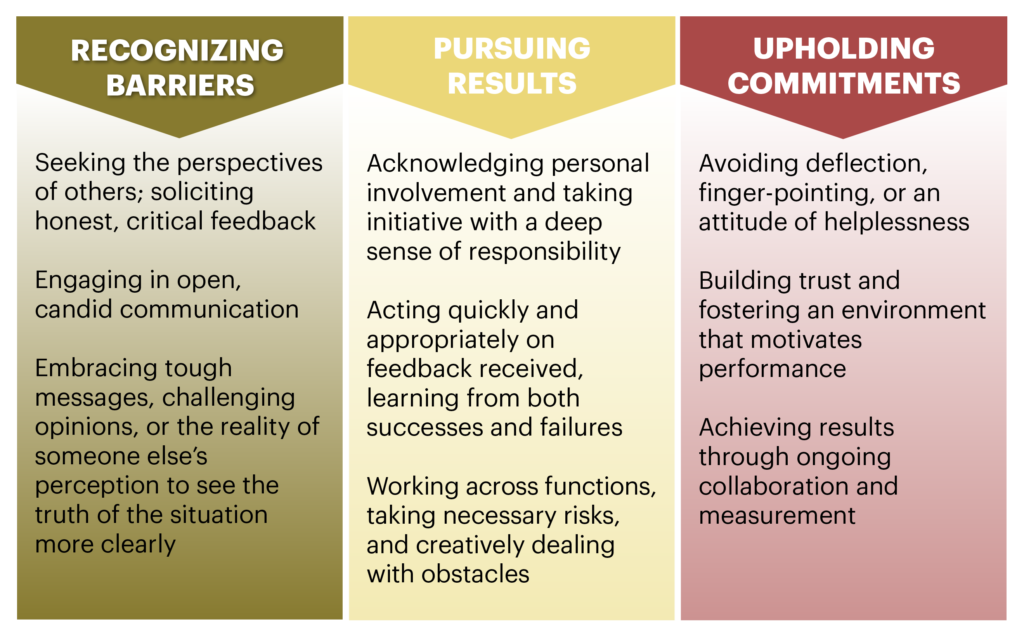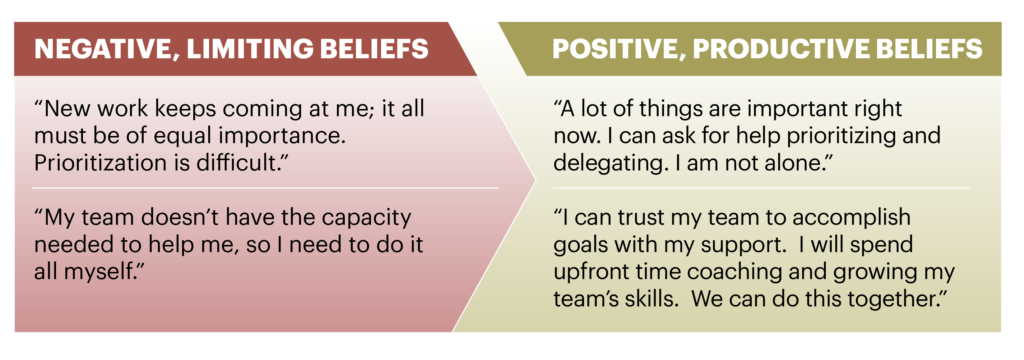Each day of this enduring crisis brings new challenges and opportunities requiring compassion, collaboration, and grit to forge ahead. As many of us have come to understand, navigating the complexities of the COVID landscape requires doing more than helping our organizations “weather the storm.” To inspire and mobilize action through what feels like a perpetual state of uncertainty, leaders must serve as a stabilizing force—providing realistic direction, aligning team focus, drawing on the collective intelligence and experience of employees, and rallying workers to adapt and thrive in a shifting reality.
How can leaders chart a course and sustain momentum in such a fluid environment? Start by getting ahead of changing circumstances. Envision success and the immediate steps to drive quickly and decisively toward it. Continually assess and ruthlessly prioritize the most critical work of your organization and move people forward with a discrete set of priorities—engaging the right resources in the right activities. Regularly check your horizon and demonstrate agility since you will need your team to do the same, embracing trust and resetting expectations along the way. Communicate plans and course corrections honestly and in a way that resonates at a rational and emotional level. Be adaptable and open to new opportunities, making strategic choices with a clear understanding of tradeoffs for your team and organization.
With 2021 approaching, are you balancing near- and long-term planning, carefully articulating criteria, assumptions, and contingencies? Are you setting and resetting expectations with others, clearly defining their roles? How are you engaging with your teams in the “new normal”?
Promoting a Culture of Accountability
The best of us make a personal choice to rise above current circumstances and take ownership of achieving key results amid continuing change, fully understanding that many factors are outside of our control. Modeling this mindset and the following behaviors with our employees can help to promote a culture of accountability resulting in greater cohesion, commitment, and action toward realizing critical milestones along the path to recovery and beyond.
Driving engagement and high performance in our current state requires facilitating a shift away from limiting beliefs and actions that can hinder success, e.g., blame, denial, and an attitude of “wait and see.” An accountable culture promotes confidence and autonomy, and with greater clarity and control, employees are better equipped to see beyond problems to focus on solutions and what they can do. Research has shown that organizations with a highly accountable workforce see roughly an 86% increase in innovation and 90% faster execution than organizations with low levels of accountability. Start to create greater accountability for results by reframing current narratives and providing experiences to help your people think more positively and productively about their daily work.
Communicate what is valued most at this time—not only desired outcomes but the beliefs that will help drive the organization forward. More importantly, model the way and reward those on your team for doing the same. Whether you realize it or not, each interaction you have with others in your organization creates experiences that either foster or undermine desired beliefs, behaviors, and outcomes.
Guiding organizations through the residual disruption and ambiguity of the pandemic will require a continual reset of priorities and redirection of resources. Leaders who paint a compelling picture of success and engage the hearts and minds of employees through meaningful experiences along the way will provide the clarity, purpose, and positive accountability needed to achieve the promise of their business plans.
What beliefs must you and your organization hold to achieve key results? Are the daily experiences you are creating fostering or undermining desired beliefs and behaviors? As a leader, are you modeling a mindset of positive accountability and supporting your team in developing and demonstrating the same?
This is the fourth and final article in a series derived from the Leading in Times of Crisis workshops delivered pro bono to support our executive network in navigating the uncertainty and change brought about by the coronavirus pandemic. See previous articles on balancing a new set of success metrics, modeling self-care and resilience, and compassionate, courageous leadership.
DCG’s purpose—and promise—has always been to help leaders lead change, and it drives us now more than ever to support our colleagues, clients, partners, and friends in managing through the continuing impacts of COVID-19. Our team is with you on this journey, and we are here to help.

